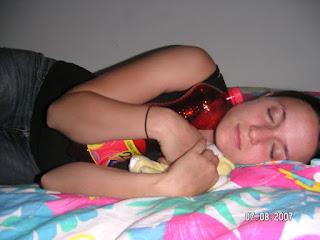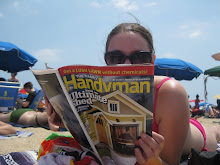In this post, I will tell you about last weekend, as well as highlight how many cups of coffee one may have during an average day in Bosnia. If my blog tells you nothing else about this country, it should make clear that Bosnia = coffee.
Over the weekend I spent my first weekend in Mostar since first arriving. I’ve had a blast traveling the other weekends I’ve been in BiH (Bosna i Herzegovina), but it was good to have a weekend to relax in the Bosnian city I know best. On Friday, Sara and I (and special guest Molly from Sarajevo) went with our supervisor, Dalida, to Trebinje, a region south of Mostar. HAD TWO SERVINGS OF ESPRESSO AT WORK BEFORE LEAVING. We had a meeting with a head doctor person to talk about the possibility of Sara and me giving presentations on PTSD to doctors in various areas around Bosnian. DRANK COFFEE WITH DOCTOR. The hospital in Trebinje is not exactly pretty, although it may have been in 1972. And it’s not air conditioned, despite summer temperatures of 90+ degrees. If anything happens to me while I’m in Trebinje, please have me air lifted to the hospital in Bern, Switzerland instead.
After our meeting, Sara, Molly, Dalida and I did what you do in BiH, GOT COFFEE. In case you haven’t been keeping track, this is coffee #4 by 1:00 pm. At this coffee gathering, we learned a lot about Bosnian culture. As Dalida was paying for our drinks, we all pulled out our wallets to contribute and said thank you when Dalida said she’d pay for it.
“You don’t have to say thank you,” she told us. She went on to explain that in Bosnia, one person pays for everyone; a bill is never split up. The next time, someone else will pay for everyone. In my mind, I would appear ungrateful or expectant if I didn’t at least offer to pay. But here, I’ve been told, it’s almost annoying. A lot of Dalida’s family now lives in Norway, and she said she can’t stand going out to dinner with a group of Norwegians when everyone is trying to figure out portions of the bill. I know plenty of people in the U.S. (and I’m probably one of them at times) who whip out their cell phones and calculate exactly how much they owe, tip and tax factored in, when in a group setting. I don’t know if the Bosnian way would fly so well with them.
The educational coffee meeting continued. Trebinje is only a 30-minute drive to Dubrovnik, Croatia, and Sara and Molly planned to hop on a bus and spend their weekend in D-town. In Sara’s guidebook, however, it said there was only one daily bus to Dubrovnik, at 10:30 am. When Sara expressed disbelief over this, Dalida explained that Croatia/Dubrovnik hates Trebinje. Trebinje allowed the Serbian army to use the Trebinje location as a place from which they could attack Croatia. Apparently the Croatia/Trebinje border is not a fun place to enter Croatia if you’re in a hurry, because the border guards take an extra long time checking out BiH vehicles, often just because.
Because of the lack of buses, Sara and Molly decided to take a taxi to Dubrovnik. But taxi’s are not allowed to cross the border, so the taxi driver removed his taxi sign, left it with a fellow driver, and told Sara and Molly that if anyone asks, he was someone they knew, not their taxi driver. I love the shadiness! I think it’s the same taxi rule for Canada and the U.S., but I’m not sure.
Dalida and I returned to the company car (yes, a non-profit with a company car. I don’t ask questions;I just get in and enjoy the air conditioning) to head back to Mostar. It’s a good 2 hour drive, so we engaged in fun conversations about U.S. politics, race relations, education, health care and Oprah.
We stopped for lunch in Stolac (I had cevapi, surprise, surprise) a town that has a segregated school, where one side of the building is Serbian students and teachers and the other side of the building has a Bosniak (Bosnian Muslims) student body and faculty. Segregation = always a good idea. Um, wait, no.
Cruising along in the company car, Dalida asked if it was OK if we stopped by her father’s house (one of two in Mostar; he has another in Norway, where he lives most of the year). Of course it was OK, so we drove on gravel roads until we pulled up to a red-roofed house in the hills outside of Mostar. We sat for about a half hour DRINKING COFFEE with Dalida’s father, uncle, uncle’s father and I think her aunt. I didn’t understand a word of the conversation but still enjoyed myself as I consumed my 200th gram of caffeine for the day. Before we left, Dalida showed me more of the property, which overlooked one of the most beautiful views I had ever seen. Tuscan landscape is probably my favorite scenic view, but this view comes in at a very close second. Green hills and red roofs and trees and blue sky and vineyards and everything beautiful. A stunning, vast view. I think it’s the vastness that makes it so striking. It rocked.
As we were leaving, her father pointed to an outside wall of the house and said it was burned three times during the war. Oh. Your house was set on fire three times. Oh. All I say when I hear stuff like that is, “wow.” Not sure how high that ranks on the sensitivity scale.
On the drive back, which was on a high road hugging a mountain side, looking over hills and valleys, so the view was spectacular, Dalida asked if I wanted to go to a barbecue her family was having that evening. I think Dalida was concerned for me because I was alone for the weekend. Even though I was not worried in the least, when someone offers me a barbecue invite, I take it. After picking up Dalida’s husband (who looks like a young Sean Penn with a slight mullet only a little cuter), daughter and sister, we made it to Dalida’s father’s second Mostar house.
Dalida’s sister is 12, lives in Norway, and speaks English quite well. When I told her I was from New York, she asked me if I had ever met someone famous, like Jennifer Lopez. “No,” I replied sadly. (Note to self: Go to NYC more and meet more celebrities so you never have to say no to this question again.)
The barbecue. The house was in a gorgeous small town outside of Mostar. The back yard of the house was like a mini orchard, with two lines of trees. Beyond the backyard was a stone patio on a river. It had to be one of the most calming places I have ever been. The sun was setting, and the water passing by at just the right pace to make the most soothing sounds. I know I sound like a cheeseball, but this place was unreal. I felt so content and so happy to be in Bosnia and grateful that Dalida brought me along, it was almost overwhelming. Fine, I’m officially cheesey. In addition to me finding my happy place, Dalida’s father grilled the most delicious trout I had ever tasted. Best fish I have ever had. So friggin’ good.
When dinner was over, Dalida said, “Shall we go?” and we went. She brought me to my apartment, but she’s friends with the landlord, who lives above me, so before I went into my apartment we all sat down on the landlord’s terrace and had…wait for it…wait for it…MORE COFFEE. I made the mistake of drinking my first cup too fast—probably because my muscles were going a million miles an hour from the day's other cups of coffee—and received a refill. COFFEE AGAIN. Finally, at the third offer of coffee I said, “No, thank you, I’ll never be able to sleep.” The landlord and Dalida laughed at me, because, they, being Bosnian, probably have no reaction to caffeine whatsoever.
Again I didn’t understand any of the conversation, but was quite content to sit and enjoy a Bosnian night while they chatted. Plus, the landlord served us little cookies and peach juice so I just nibbled and sipped and couldn’t be happier.
My day ended around 10:30 p.m. and somehow I feel asleep.
I proceeded to do nothing for the rest of the weekend except watch Wimbledon and discover how good the jam is here. I can now say “15,” “30,” and “40” with an excellent Bosnian accent and eat jam straight out of a jar without feeling guilty.
Friday’s Final Coffee Count: 7 CUPS.
















.jpg)



















